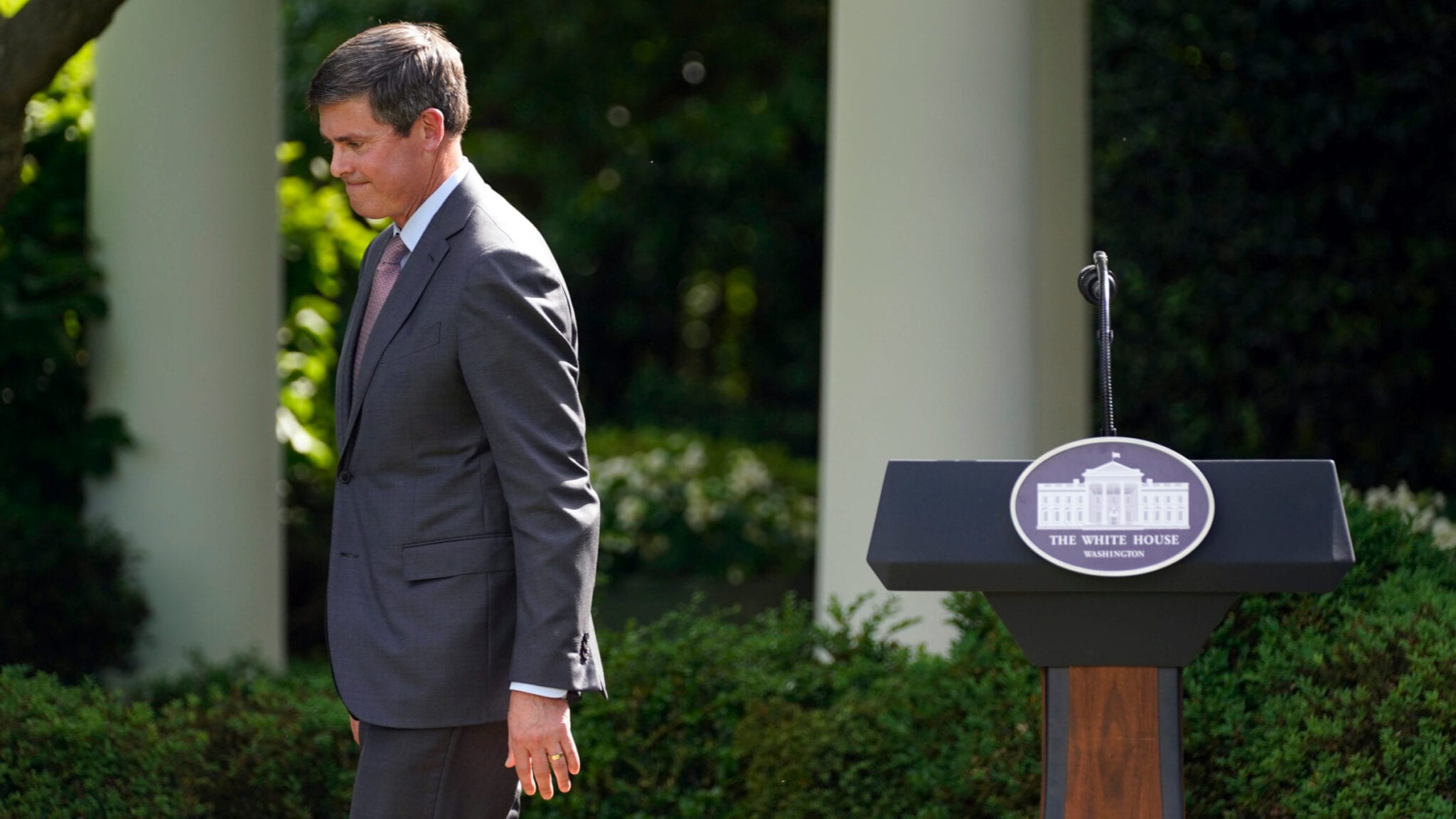
David Ricks, Eli Lilly CEO, steps away from the podium at the White House (Evan Vucci/AP Images)
US pauses use of Eli Lilly's Covid-19 treatment nationwide due to variants
Due to the presence of variants, the US said Friday that it’s pausing shipments of Eli Lilly’s monoclonal antibody combo for the treatment of Covid …
Sign up to read this article for free.
Get free access to a limited number of articles, plus choose newsletters to get straight to your inbox.